When we’re trying to slim down, gain muscle, or just maintain a healthy weight, scales can be our worst enemy. Constantly measuring our weight and seeing varied outcomes can result in disappointment, negative feelings, and despair. It’s important to understand that the scales are a tricky device that we can’t believe blindly without taking other factors into account that play into weight fluctuation.
We have decided to collect all these crucial elements that we should bear in mind before stepping onto the scale.
1. Time

To accurately track your progress, it’s better to weigh yourself on the same day every week (or every day), at the same time. It’s best to weigh yourself in the morning after you’ve emptied your bladder, but before breakfast.
2. Clothes
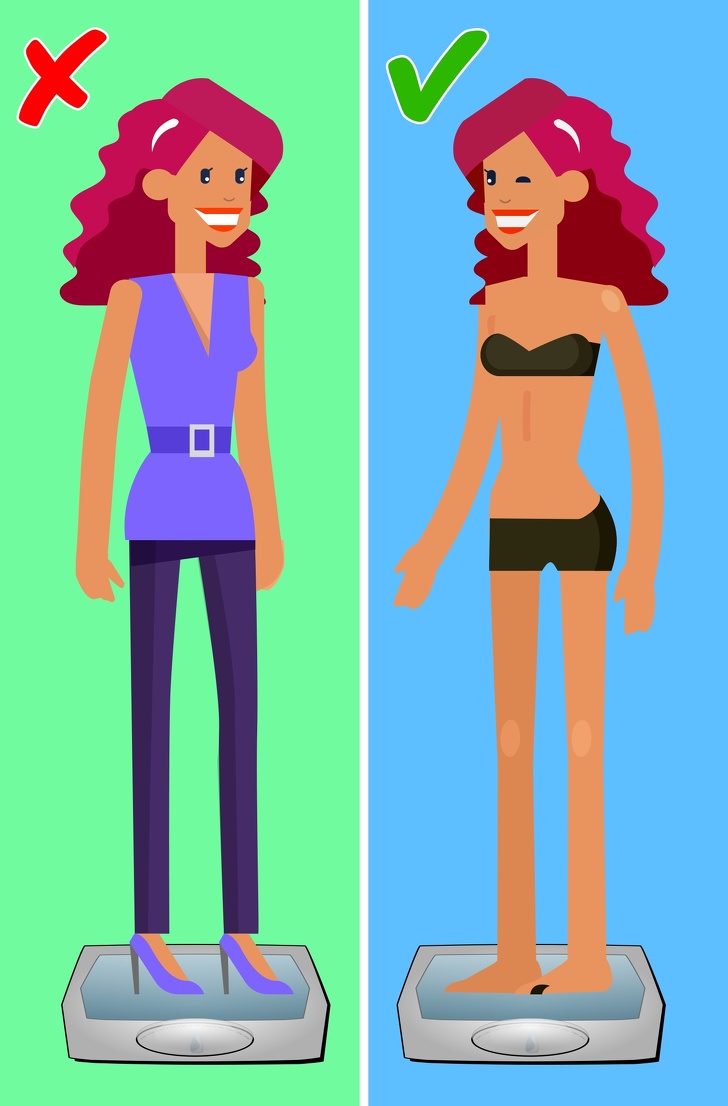
You should always measure your weight wearing the same clothes or not wearing clothes at all. This is because your garments can have different weight and can be pretty heavy. We’re pretty sure we don’t need this additional disappointment, right?
3. Place
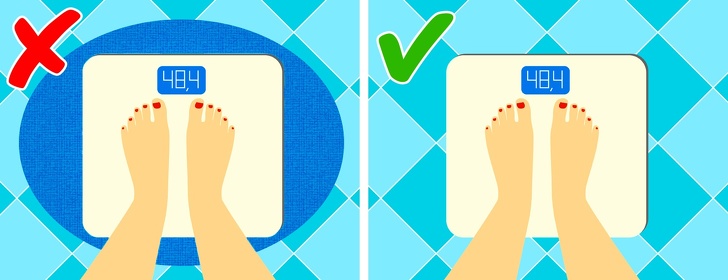
Set your scale in the same place each time you measure your weight. It should be a hard, even surface. Don’t put it on carpeting. An unsteady scale can result in an inaccurate reading.
4. Stand still
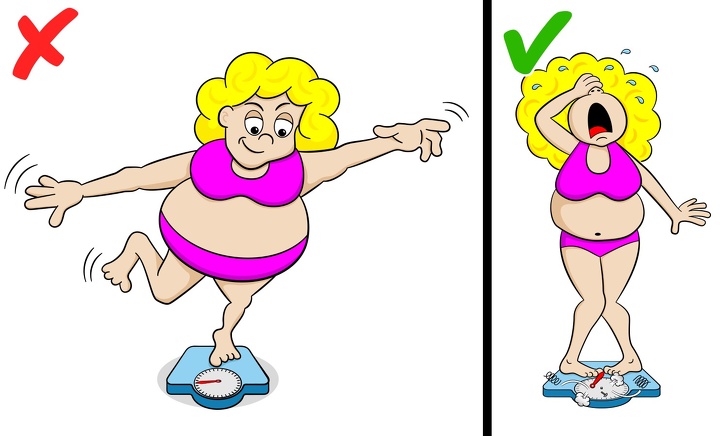
To get an accurate reading, it’s important to stand still with your weight distributed equally on both feet. Some types of scales also require you to be barefoot.
5. Types of scales
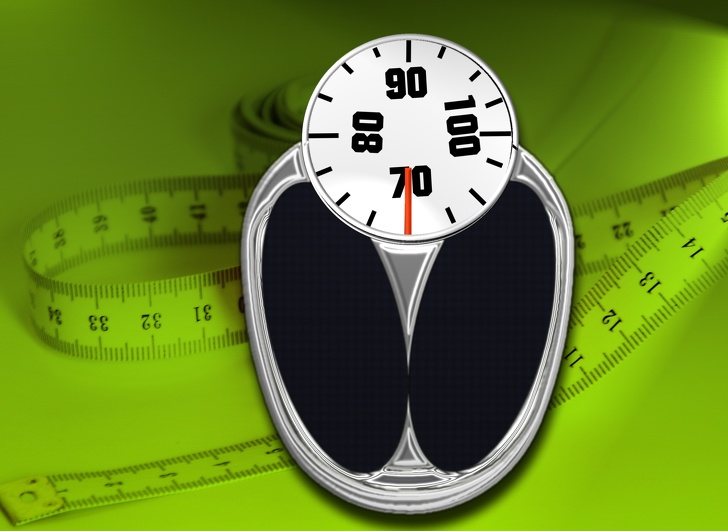
Your body weight depends on the type of scale you use. The working mechanism may differ from company to company. Also, there are scales that measure your body composition and fat percentage. To avoid confusion, it’s better to trust only one scale.
6. Weather
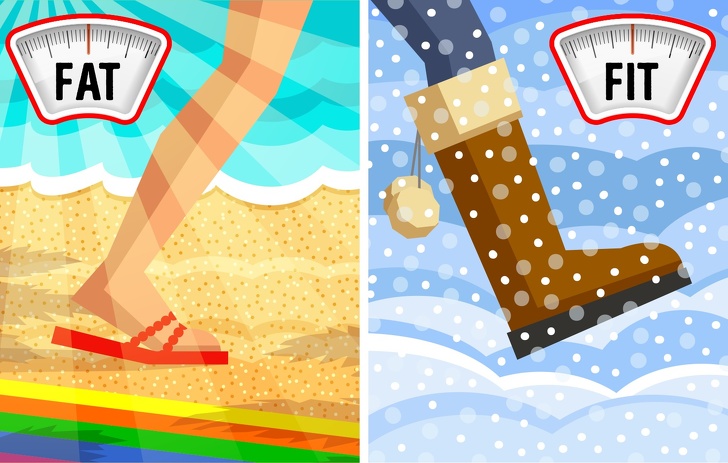
You should always take into count the weather outside. There are scientific studies that have proven that low temperatures, high levels of precipitation, and wind speed are all associated with weight loss. You may slim down a little, but it’s most likely not a permanent change.
7. Salty foods
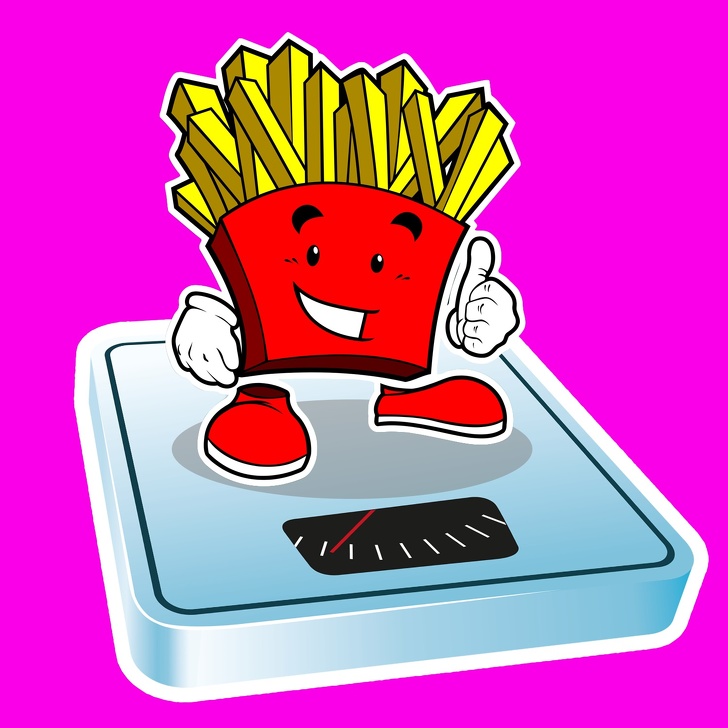
When standing on the scale, you should always remember whether your diet the day before was full of sodium or not. Salt can cause water retention in your body and increase the number that appears on your scale.
8. Water retention due to hormones
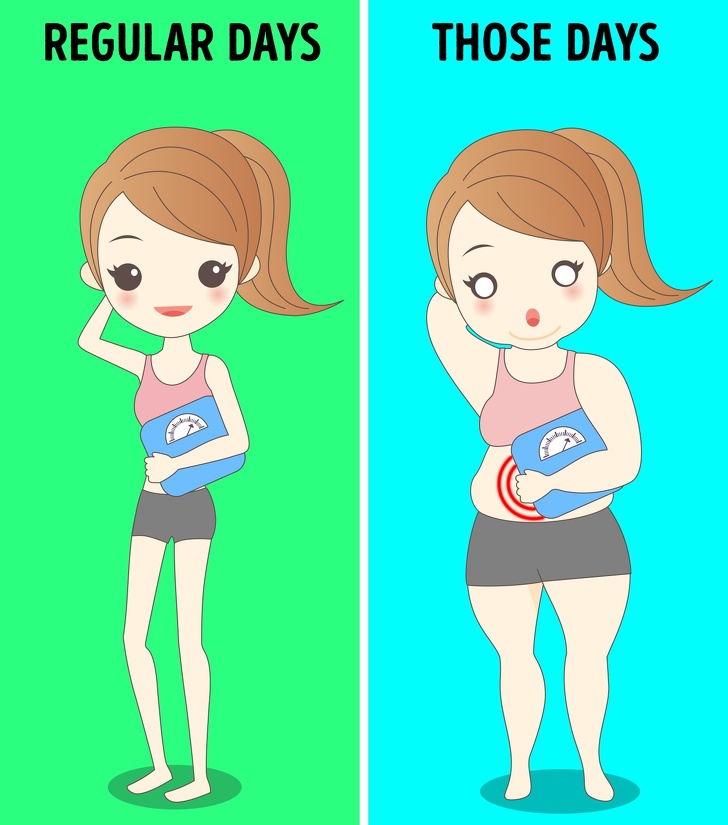
If you’re a woman, remember that your weight can fluctuate due to hormonal changes. Ovulation and periods often cause fluid retention, which is reflected in the scales. This constant rise and fall of weight has nothing to do with your true weight.
9. Body composition
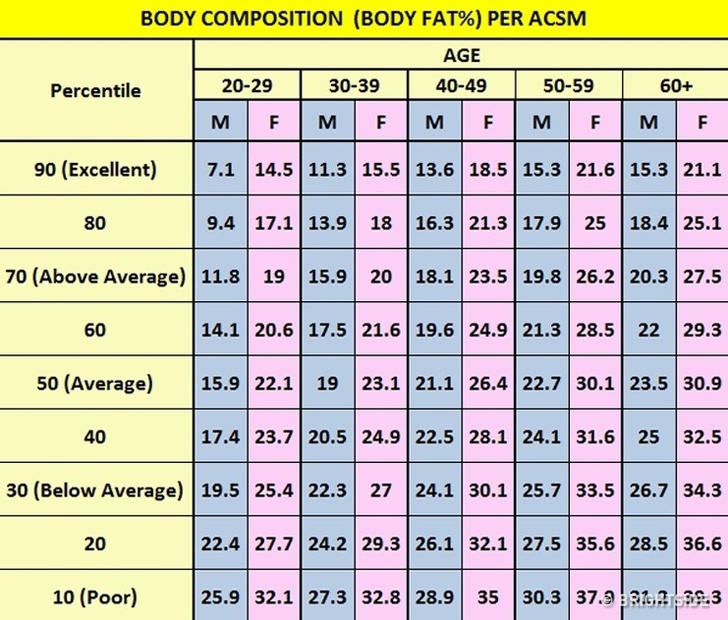
A kilogram of fat and a kilogram of muscle weigh the same, but look totally different. Muscles occupy significantly less space. That’s why it’s so important to know your body fat percentage and to understand that if you’ve been training hard and gained a few kilos, you may have actually gotten slimmer.
10. Do not weigh yourself right after exercising.
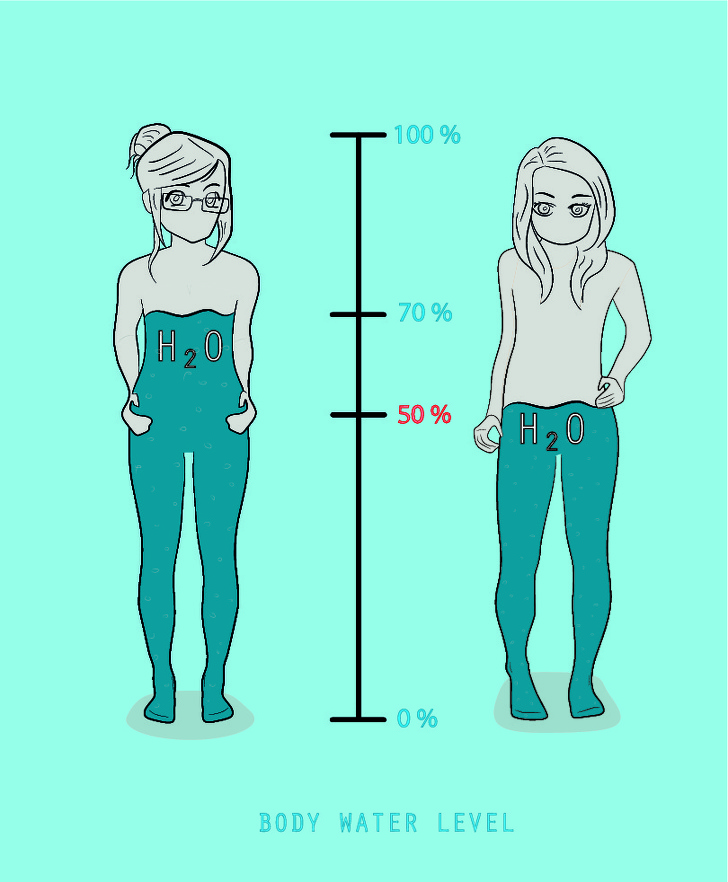
If you´ve just had a sweaty workout, your weight might be lower. But this is due to dehydration, not real weight loss. So there’s only one reason to weigh yourself after working out at the gym and it’s to control your fluid losses.
11. Don’t even think about weighing yourself after a big night out.
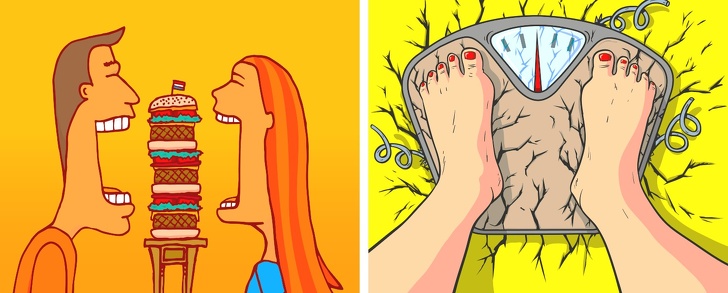
Don’t torture yourself. Restaurant food is full of fat, salt, and sugar which in big quantities can increase your blood volume level, retain fluid, and cause a bigger number to appear on the scale. Wait a day or 2 to see the real picture.











